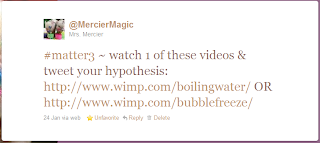WWE (Wild World of Evaluation)
I seem to be in a constant state of flux. I have become adverse to assessment & data. I am aware that there is a variety and abundance of research out there for both the pros and cons of assessment and data. I have read both over the years. In past years I was a rubric queen. Everything was rubricized: working as a group/partnership, products, process, and content. I stopped creating rubrics on my own & involved my students in creating the rubrics. My students were rubric masters! These last two years I have slowly removed rubrics from my classroom. This is when I began to question their effectiveness.
I wondered why I was providing a document that 1)told my students the least they could do 2)put a cap on what they could do. I was finding them to be limiting at both ends of the spectrum. Even though rubrics are to be a continuum & I felt as if I were doing a good job creating ones that reflected this, at some point the continuum says 1)once you get here, you have nowhere left to go (or I won't allow you to go any further) 2)because you are here, you really don't know what you are doing or anything at all. I wondered what my students were really gaining from using rubrics. Can they reflect on their learning? Do they know what they are doing well? Do they know how they can grow? I noticed that they did not. Don't rubrics try to squeeze someone into a box? (Just look at their design.)
I wanted more for my students. Being a reflective person and knowing how I grow by constantly thinking about what I do, I knew that I wanted that for my students. I have to say, it's not easy. Reflection is not easy. If you are critical of yourself you can put a tremendous amount of stress on yourself. It can be difficult to admit to yourself that you need to change something. It can be tough when you don't know what to do next. It's really tough teaching kids this process.
Here's the conundrum...what are my kiddoes actually reflecting on? What's the criteria? I'm thinking that it's right there in what I teach my students. Every mini-lesson, action, & interaction. Posters litter my room of all the common language we have created together since the beginning of the school year. Language that states what we do looks like, sounds like, & feels like. But is that enough?
I wondered why I was providing a document that 1)told my students the least they could do 2)put a cap on what they could do. I was finding them to be limiting at both ends of the spectrum. Even though rubrics are to be a continuum & I felt as if I were doing a good job creating ones that reflected this, at some point the continuum says 1)once you get here, you have nowhere left to go (or I won't allow you to go any further) 2)because you are here, you really don't know what you are doing or anything at all. I wondered what my students were really gaining from using rubrics. Can they reflect on their learning? Do they know what they are doing well? Do they know how they can grow? I noticed that they did not. Don't rubrics try to squeeze someone into a box? (Just look at their design.)
I wanted more for my students. Being a reflective person and knowing how I grow by constantly thinking about what I do, I knew that I wanted that for my students. I have to say, it's not easy. Reflection is not easy. If you are critical of yourself you can put a tremendous amount of stress on yourself. It can be difficult to admit to yourself that you need to change something. It can be tough when you don't know what to do next. It's really tough teaching kids this process.
Here's the conundrum...what are my kiddoes actually reflecting on? What's the criteria? I'm thinking that it's right there in what I teach my students. Every mini-lesson, action, & interaction. Posters litter my room of all the common language we have created together since the beginning of the school year. Language that states what we do looks like, sounds like, & feels like. But is that enough?

Comments
Post a Comment